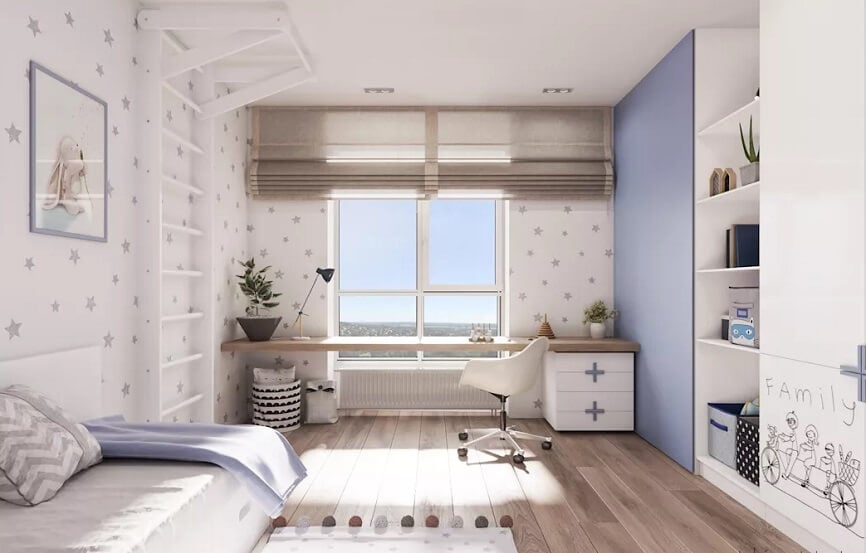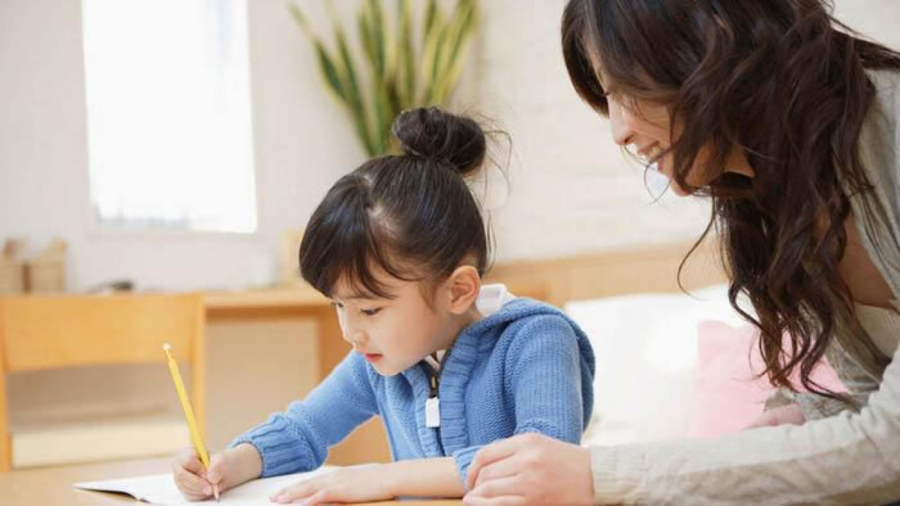A psychologist in China has stated that a child’s academic achievement is not closely related to how parents invest in a well-equipped study room, but rather to the layout of the house and the family atmosphere. Therefore, this expert has pointed out three positions in the house that affect children.
Bedroom

The bedroom is a place to rest, but parents should not neglect conversations with their children. Through conversation, parents can keep up with their children’s psychological states while also cultivating their learning abilities. Dr. Dana Suskind from the University of Chicago Medicine has said that parents’ language is the best source of education to stimulate brain development. This means that the more parents talk to their children, the smarter they will become.
Psychologists have analyzed that memory reaches its peak before falling asleep at night. Children who are eager for their parents’ embrace and communication will find it easier to confide in their parents. If parents don’t have time during the day, they should make use of the time before bedtime to interact with their children, as this will significantly increase the effectiveness.
What matters is not the topic or the amount of knowledge, but the attention and love that the conversation brings to the child. Children who grow up in love will have a firm soul, not be bothered by trivial matters, and be more dynamic in life and learning.
Kitchen

Many parents don’t like their children to be in the kitchen because they worry about them making a mess or wasting study time on unnecessary things. However, what seems normal in the kitchen is actually an opportunity to develop a child’s survival skills and brain development.
The connection between the nerves of the human brain and the nerves in the fingers is very close. The better a child’s motor skills, the higher their brain development will be. As the educator Suhomlinski from Ukraine said, a child’s intelligence lies in their fingers.
Allowing children to “play” in the kitchen from a young age not only helps develop their brain and intelligence but also trains them in skills and a self-reliant attitude towards life. When children have a love for life, they will be enthusiastic about learning with an integrated attitude. A child who can control their life will transfer this ability to their studies and take responsibility for their learning.
Living Room

The living room is where the TV hangs and the sofa is placed. Most parents do not think about having their children study in the living room because they believe that children need to study in a quiet place.
However, the Japanese educator Nishimura Noriyasu believes that placing books and a study desk in the living room can easily stimulate a child’s active learning. A study of over 200 groups of families with academically successful children in middle school showed that, compared to a quiet and isolated children’s room, most children with exceptional scores and positive learning habits preferred an open study environment.
Compared to studying in the living room, children sitting alone at a table in an isolated room away from any noise will be more easily distracted. One father secretly took photos of his child doing homework alone in a room for 9 minutes. The photos showed that during that time, the child tapped the wall with their fingers for 10 seconds, pushed and pulled the room door for 1 minute and 31 seconds, drew on the wall for 1 minute and 46 seconds, and thought about life for 57 seconds. In addition, the child raised their hands and legs for 1 minute and 38 seconds, went to the bathroom once in the middle, and only spent 2 minutes actually doing homework.
In reality, in places where parents cannot see, children will be fascinated by many things around them, such as an eraser or a pen.
It is necessary to exercise restraint to make children voluntarily stop these small movements. Before the child is capable of self-discipline, parents should not leave them alone in a quiet, isolated study room, but rather accompany them and connect learning with positive emotions. Only in this way can children’s interest in learning be stimulated instead of being bored.
Mothers’ Need for Awareness of Dual Activity of Breastfeeding and Watching TV
In the contemporary world, in which technology pervades our lives, some mothers tend to soothe their babies through nursing while simultaneously watching television. Although this practice may not appear to affect the infant, studies show that it can in fact have dire repercussions on the baby’s well-being, both in terms of physical health and mental growth. In this article, we will look at the possible reasons for this activity and its potential outcomes.





































